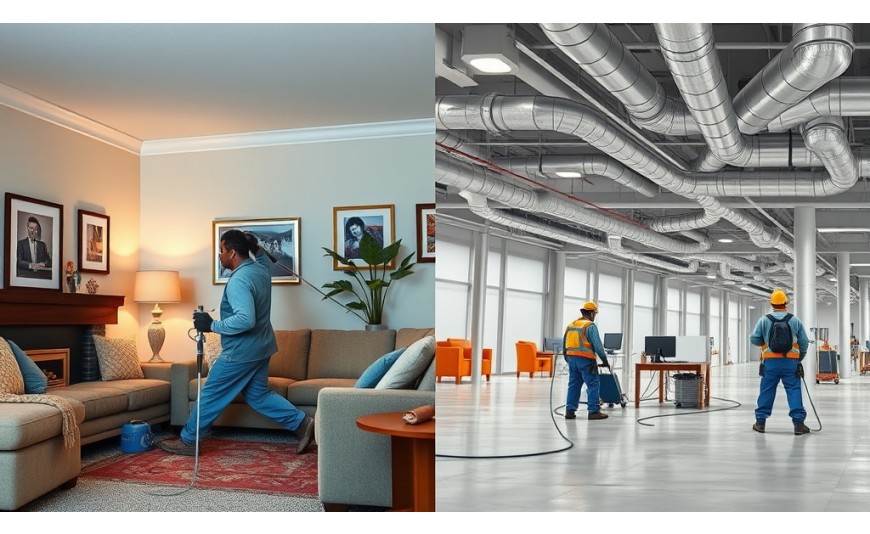
In our modern world, many of us spend the majority of our time indoors. Whether it’s at home, at work, or in various public spaces, the air quality in these environments is crucial for our health and well-being. A key component of maintaining high indoor air quality is regular duct cleaning. But did you know that there's a significant difference between residential and commercial duct cleaning? In this blog post, we'll explore these differences, delve into real-world scenarios, and discuss the implications of these practices.
Historical Context of Duct Cleaning
Air duct cleaning is not a new concept. The origins of duct cleaning can be traced back to the post-World War II era, when central heating and cooling systems began to gain popularity. As these systems became more widespread, so did the understanding that they required maintenance to function efficiently and safely.
Over the decades, awareness around air quality issues has grown, leading to advancements in duct cleaning technology and techniques. Initially, duct cleaning was primarily a residential service, but as commercial buildings grew in complexity and size, the need for specialized commercial duct cleaning services emerged.
What is Duct Cleaning?
Before delving into the differences, let's start with a brief overview of what duct cleaning entails. Duct cleaning involves the removal of dust, dirt, and other contaminants from the heating, ventilation, and air conditioning (HVAC) system's ducts. This process can help improve the efficiency of the HVAC system, enhance air quality, and extend the system's lifespan.
Key Benefits of Duct Cleaning:
- Improved Air Quality: Reduces allergens and pollutants.
- Energy Efficiency: A clean system operates more efficiently.
- Prolonged System Life: Regular cleaning can prevent breakdowns.
- Odor Reduction: Removes musty smells caused by mold and dust.
Residential Duct Cleaning
Characteristics of Residential Duct Cleaning
Residential duct cleaning is focused on private homes. These systems are generally smaller and less complex compared to commercial systems. Here are some characteristics of residential duct cleaning:
- System Size and Complexity: Typically smaller and simpler.
- Frequency of Cleaning: Homeowners may schedule cleaning every 3-5 years, though this can vary based on factors such as pets, allergies, or recent renovations.
- Contaminants Encountered: Common contaminants include dust, pet dander, mold, and pollen.
Why is Residential Duct Cleaning Important?
For homeowners, duct cleaning can significantly improve indoor air quality. This is especially important for households with:
- Allergy Sufferers: Clean ducts can reduce airborne allergens.
- Pets: Pet hair and dander can accumulate in ducts.
- Young Children or Elderly Residents: Clean air is vital for vulnerable groups.
Real-World Scenario: The Homeowner's Perspective
Imagine Sarah, a homeowner with two young children and a dog. She notices that her family is sneezing more often and there's a persistent musty smell in the house. After researching, she decides to have her ducts cleaned. The professionals find a buildup of pet hair and dust, and after cleaning, the air feels fresher, her children’s sneezing reduces, and the musty odor disappears. For Sarah, residential duct cleaning not only improved her family’s comfort but also their health.
Commercial Duct Cleaning
Characteristics of Commercial Duct Cleaning
Commercial duct cleaning is a more complex operation due to the larger scale of commercial buildings and the intricacy of their HVAC systems. Here are some characteristics of commercial duct cleaning:
- System Size and Complexity: Much larger systems, often requiring specialized equipment and expertise.
- Frequency of Cleaning: More frequent cleaning schedules, often annually or bi-annually, depending on the industry and building usage.
- Contaminants Encountered: In addition to dust and mold, commercial systems may face industrial contaminants or high levels of grease, particularly in restaurants.
Why is Commercial Duct Cleaning Important?
For businesses, duct cleaning is crucial not only for air quality but also for maintaining a safe and efficient work environment. Considerations include:
- Occupant Health and Safety: Poor air quality can affect employee health and productivity.
- Compliance with Regulations: Many industries have regulations regarding air quality that must be met.
- Operational Efficiency: Clean ducts can lead to lower energy costs and reduced system downtime.
Real-World Scenario: The Business Owner's Perspective
Consider a restaurant owner, John, whose establishment has been experiencing poor ventilation, leading to smoky air and uncomfortable temperatures. After a commercial duct cleaning, the kitchen’s air quality improves significantly, creating a more pleasant environment for both customers and staff. Additionally, John notices a reduction in energy bills, making the investment in duct cleaning financially worthwhile.
Key Differences Between Residential and Commercial Duct Cleaning
1. Scale and Complexity
- Residential: Smaller, simpler systems; often accessible and straightforward to clean.
- Commercial: Larger, more complex systems; may require advanced equipment and expertise.
2. Frequency of Cleaning
- Residential: Typically less frequent; influenced by specific household factors.
- Commercial: More regular cleaning needed due to higher usage and regulatory requirements.
3. Types of Contaminants
- Residential: Mainly dust, pet dander, and mold.
- Commercial: In addition to typical residential contaminants, there may be industrial pollutants, grease, and other specific wastes.
4. Cost Considerations
- Residential: Generally more affordable due to smaller system size.
- Commercial: Can be more costly due to the scale and complexity, but often offset by energy savings and compliance benefits.
Current Trends in Duct Cleaning
Technological Advancements
The duct cleaning industry is evolving with technology. New tools and techniques are making the process more efficient and thorough. For example, robotic duct cleaning devices can navigate complex systems more effectively, ensuring a comprehensive clean.
Increased Awareness and Demand
As awareness of indoor air quality grows, so does the demand for duct cleaning services. Homeowners and businesses alike are becoming more proactive in maintaining their HVAC systems.
Green Cleaning Solutions
There is a growing trend towards environmentally friendly cleaning solutions. Services are increasingly using non-toxic, biodegradable products to ensure that the cleaning process itself doesn’t contribute to indoor pollution.
Future Implications of Duct Cleaning
Health Implications
With the increasing focus on health and wellness, regular duct cleaning is likely to become a standard recommendation for both homes and businesses. This could lead to significant public health benefits, particularly in urban areas where air quality can be a concern.
Technological Integration
As smart home and building technologies advance, we may see HVAC systems equipped with sensors that monitor air quality and alert owners when cleaning is necessary. This could optimize cleaning schedules and ensure systems are maintained in peak condition.
Environmental Considerations
The push towards sustainability could further influence the duct cleaning industry. More efficient HVAC systems and greener cleaning practices could reduce the environmental footprint of duct cleaning services.
Conclusion
Understanding the difference between residential and commercial duct cleaning is crucial for determining the right approach to maintain indoor air quality. While both types of duct cleaning share the common goal of improving air quality and system efficiency, the scale, complexity, and specific needs of residential and commercial systems differ significantly.
For homeowners, regular duct cleaning can enhance comfort and health, especially in households with specific needs. For businesses, maintaining clean ducts is not only about ensuring air quality but also about complying with regulations and optimizing operational efficiency.
As technology and awareness continue to advance, we can expect duct cleaning to become more integrated into regular maintenance routines, contributing to healthier and more sustainable living and working environments.
Whether you're a homeowner or a business owner, understanding these differences can help you make informed decisions about maintaining your HVAC system and, ultimately, the air you breathe.


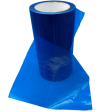
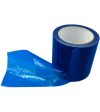
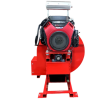
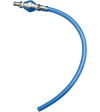
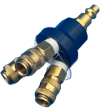
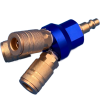
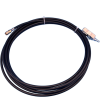



Write a comment